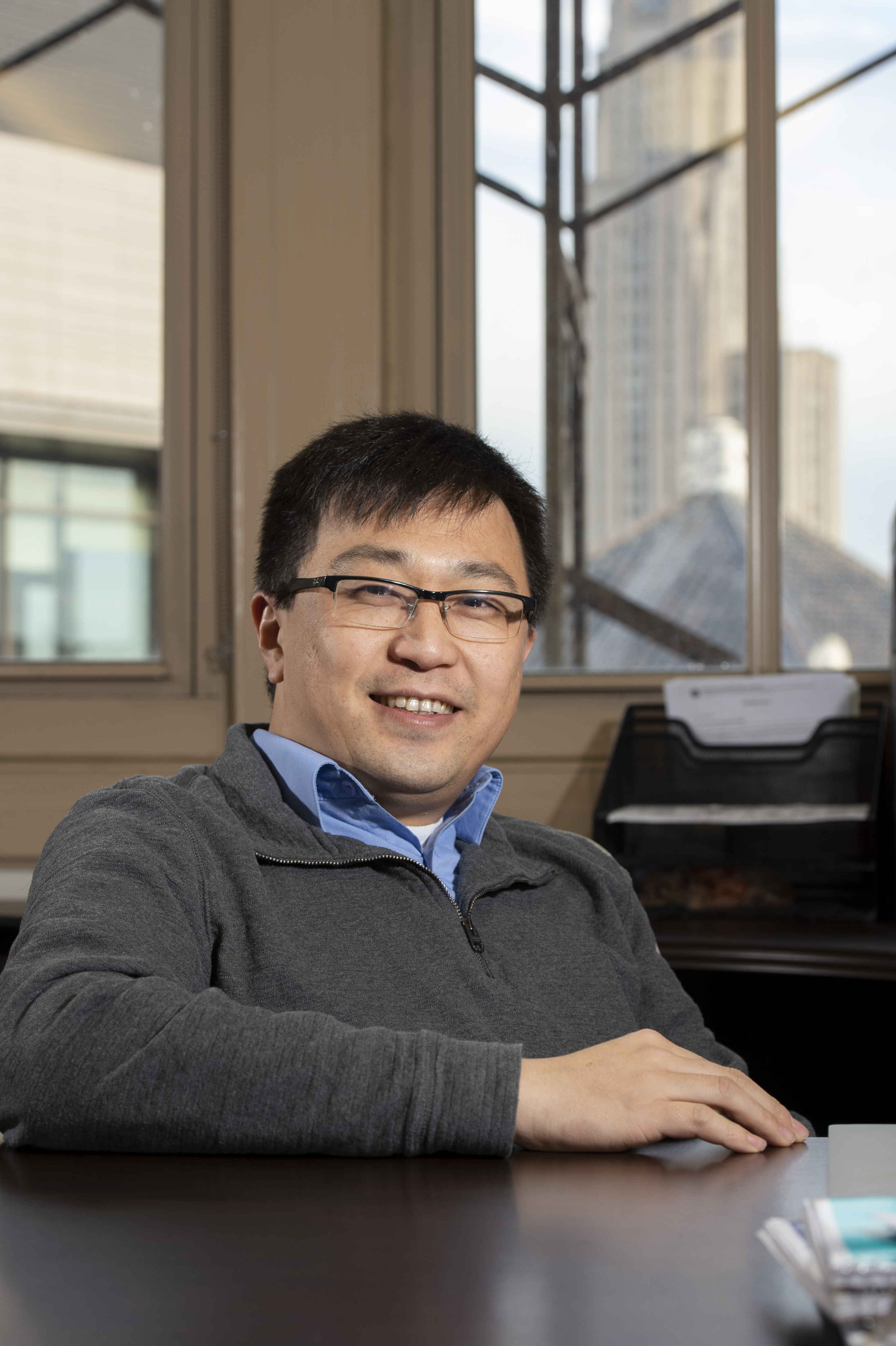Pitt CRC computation guides catalyst design

Strengthening the marriage of computation and experimentation is a goal of Peng Liu, assistant professor in Pitt’s Department of Chemistry. Liu already has a productive relationship with Pitt Center for Research Computing: his laboratory used Pitt CRC resources on 37 papers published in Nature, Science, Nature Chemistry and other journals. Now the Liu lab is using Pitt CRC in refining computation models as part of a research process incorporating rapid experimental feedback.
“With only computation, we can never really reproduce reality,” explains Liu. “There can be a tremendous amount of error in computation when dealing with complex chemical systems. Experimentation works with realistic systems, but it is often based on trial and error. To advance computation to guide experiments you need new computational models that incorporate experimentation. Experimentation may be trial and error, but don’t forget the importance of intuition in trial and error.”

Liu’s lab designs catalysts to selectively control basic chemical reactions. They are developing computational tools to build theoretical models that directly guide experimentation, the results of which guide new iterations of the models. Already an NSF CAREER Award winner, Liu recently received a Maximizing Investigators' Research Award (MIRA), a new category of National Institutes of Health grant. The five-year, $1.8 million grant is unique in several ways. MIRA provides support for a laboratory – not an individual PI carrying out a specific project. The award is not tied to goals specified in a proposal. And in a welcome change, MIRA reduces time spent writing and re-writing grant proposals.
“With MIRA we have freedom for new creativity,” says Liu. “It funds the work of our entire group. Members of the laboratory can follow a new direction, even if it is not in the original proposal.”
To develop drugs with specific properties, it is necessary to control catalysts. The Liu lab focuses on molecules called alkenes or olefins – hydrocarbons that synthesize compounds important for biomedical research. Among the influences on alkene catalysis are ligands, molecules binding to a central metal atom, and transition metals – ions of elements such as iron in which electrons are sparse in the outermost regions of the atom. Transition metals are effective catalysts because they easily exchange electrons back and forth with other molecules. The possible combinations of ligands, transition metals, and alkenes are vast.
Pitt CRC provides computational power for all the MIRA projects. Given the Liu Lab’s many active projects being carried out by a large group of collaborators, the power and capacity of computing resources at Pitt CRC is crucial.
“The catalysts being modeled have complex structures with a lot of atoms and a large number of possible reaction pathways,” Liu explains. “It is common to do hundreds or thousands of calculations to model just one reaction.”
Because Pitt CRC focuses exclusively on the Pitt research community, the Center boasts short wait times, an important factor for Liu.
“Our calculations usually take multiple iterations – first calculations, then data analysis, then more calculations and more data analysis. In many cases, we also need feedback from experimental collaborators to guide the next set of calculations. Pitt CRC’s fast turnaround time is very helpful for our productivity.”
“Because the MIRA grant gives us greater flexibility, we expect to work on an even broader variety of research that can potentially lead to important breakthroughs. The capability of Pitt CRC’s computing clusters to perform diverse types of calculations will be very helpful.”

Students in the Peng Liu lab: front row, Humair Omer, Cheng Fang, Elena Kusevska, Peng Liu, Huiling Shao, Tugce Erbay.
Back row: Hua Hao, Yimin Chen, Xiaotian Qi, Cristian Morales-Rivera, Luke Jesikiewicz, Bruce Thompson,
Contact
Brian Connelly
Pitt Center for Research Computing
bgc14@pitt.edu
412-383-0459
